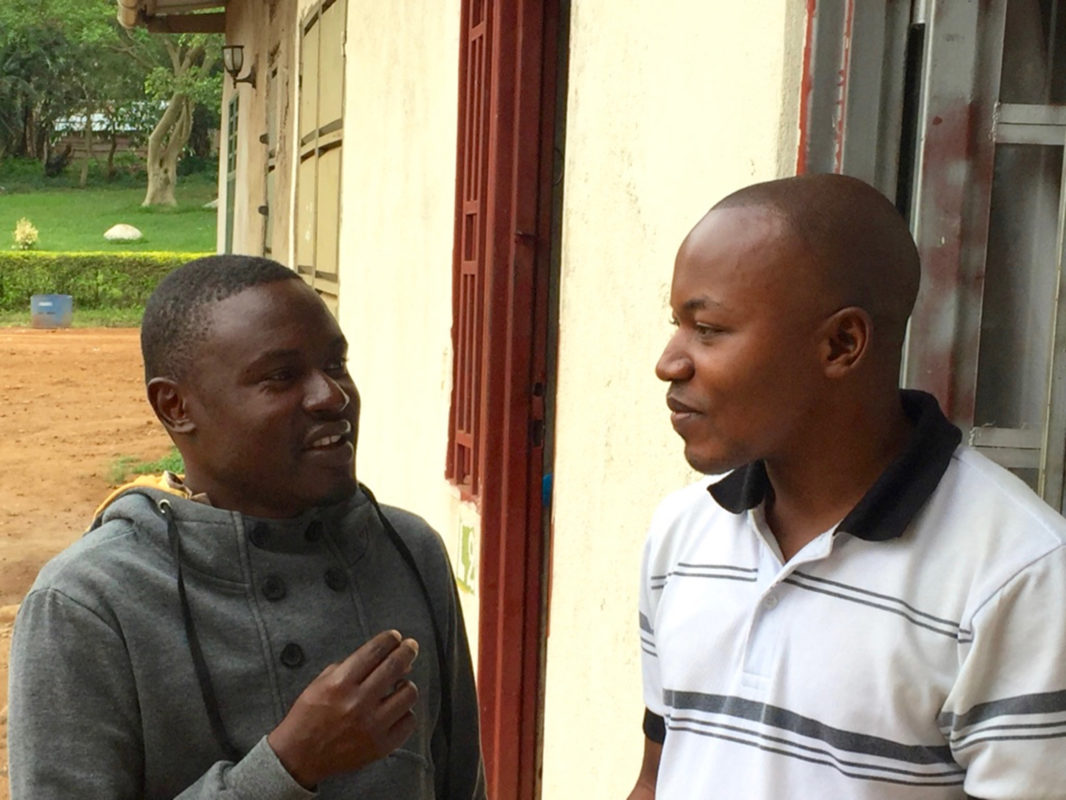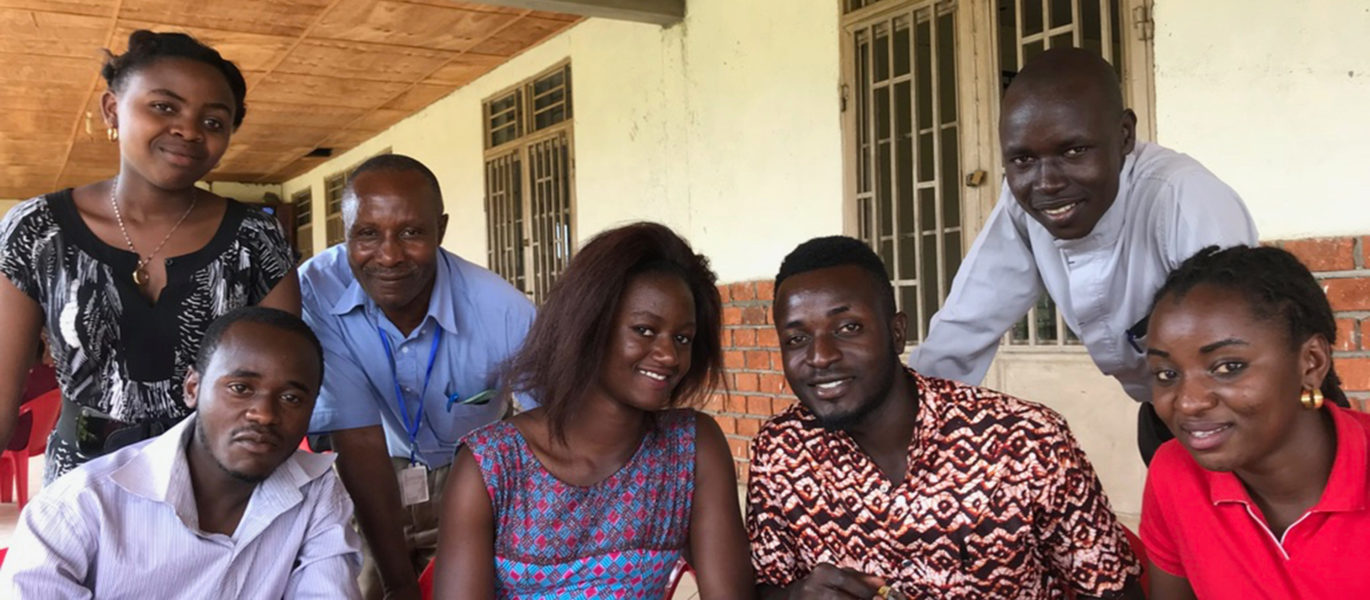In 2010, I visited the city of Beni in eastern Democratic Republic of Congo for the first time. After international flights between the U.S. and Uganda, I boarded an 8-seat, Russian-built, prop plane of questionable age for the last two legs of the trip. The changing landscape from escarpment at the edge of Lake Victoria to the dense forest was astounding.
Like most Americans, I had read and heard stories about Congo’s complex history — a kleptocracy that ravaged the population for the benefit of the rubber trade, colonial rule that demeaned an entire country, and years of dictatorship and corruption that impede the nation’s growth to this day.
I went to Congo at the invitation of Congo Initiative (CI), a Congolese-envisioned and Congolese-led organization, and continued to work with CI and one of its core initiatives, Université Chrétienne Bilingue du Congo for the next eight years.
The stories of war, poverty, and corruption that framed my early knowledge of Congo fill the imaginations of most Americans. Since August 2018, accounts about the current Ebola epidemic staple themselves to the list of hardships the Congolese face.
But, hardships do not define Congo and its people. With approximately 250 different ethnic groups and languages, Congo’s history is nuanced and complex (learn more here). The country abounds in natural resources — mineral wealth, rainforests, rivers and lakes. Its landmass matches the size of the U.S. from the East Coast to the Mississippi River.
None of that compares to the joy, courage, hope and faith of its people. I lived in Beni for several months at a time over those years. Colleagues who became friends and then family bestowed gifts of wisdom and love that continue to flourish to this day.
I learned things that I try to continue to live out now that I’m back in the U.S. permanently. These are lessons with wisdom for all of us, I think.
Lesson 1: Presence Over Product
My Congolese friends know how to simply be.
Congo is a culture of relationships. The work day begins with heartfelt greetings. “How are you? How was the night? How is the family?” Business transactions freeze or flow on face-to-face exchanges. One drops tasks, offers tea and unfettered time to a guest, planned or unexpected. This is how trust is built.
A Boston-based community leader once hosted the founder and president of CI and me at a meeting. He wanted to bring a team of professors, researchers and graduate students from MIT and Harvard to Beni.
After the initial social chit-chat, personal sharing and information exchange, he asked, “What would we do if we came to Congo?”
My colleague responded, “Just come and be. Get to know us. Let us get to know you.”

Mary Henton
Be present with others: Ask questions, and listen to the day’s stories.
How many times do we get caught up in doing rather than being? We define ourselves by verb phrases. We volunteer at the school, work at the clinic, develop new markets, take Pilates, lead a team.
Being present is so important. When a friend suffers sadness, just sit and be with her. You don’t have to fix the problem. At dinner or while your kids are doing homework, put away your phone. Ask questions. Listen to the day’s stories. When you’re standing on the sidelines of your daughter’s soccer game, strike up a conversation with the parent or grandparent next to you. Sit by the window or on a park bench. Make time each day to just be with yourself.
Lesson 2: Practice Gratitude
I’m a good American who thinks illness, car breakdowns, kids’ school troubles, and other onslaughts of life are battles that I need to fight.
I rarely wonder, “Where is the good in spite of this difficulty?” I see the challenge and, maybe, look for the opportunity.
With that, it’s not my first inclination to offer thanks to a higher power, the universe or the people around me. Congo taught me otherwise: In all things, give thanks.
One day, during a staff meeting, my colleague Célé recounted five separate incidents where members of his family had fallen ill or been injured. My first thought was, “Oh! How terrible!”
Célé said, “We continue to thank God for His goodness and blessings to us.” Célé’s words were not hollow attempts to paint a veneer of happiness over hardship. His words were sincere statements of faith.
Last week, I received a message from another colleague that thieves had broken into his home and stolen clothing, food and electronics. After recounting the events, William wrote, “The thieves failed to hurt us. We are alive. May the all-powerful one be praised.”
The gratitude my Congolese friends express amidst persistent hardships is not a psychological analgesic. It is a conviction that in spite of systemic injustice, blessings breathe.
Evidence abounds that expressing gratitude and admitting one’s vulnerability builds resilience and compassion. Expressing gratitude builds grit. It builds gratitude muscles for those times when life hurls its heaviest hardships on us.
So, the next time a co-worker misunderstands you, a neighbor’s trash spills across your driveway, or glitches in the new software upend the day’s schedule, try giving thanks that you have a job, a driveway, and the possibilities of new technologies. Give thanks for the opportunity to grow a little grit. Maybe, even, try giving thanks for something completely unrelated — a great cup of coffee you had this morning, scoring tickets for an upcoming show, having a healthy check-up at your PCP office.
The next time life hurls its worst at you, give thanks.
Lesson 3: Guests Bring Blessing
One Monday morning in Congo, I opened my classroom door to find eight strangers asleep on mattresses. Backpacks, sandals and clothing cluttered the space. Desks and chairs had been pushed to the room’s perimeter. The university’s student government had hosted a conference for other students that weekend and appropriated classrooms, including mine, for dormitory space.
With my English class scheduled to begin in 10 minutes, I spun around and nearly shouted at one of the conference organizers in the hallway. “We have class here this morning! I need everyone out so I can set up the room!”
One of my students stood nearby. With respect and more maturity than I was demonstrating, he said, “We must be patient. Guests bring blessings.”
Stung by that wisdom, I remembered the many times Congolese friends and colleagues had treated me with graciousness when I was their visitor. They had acted as if I brought special blessing. They prepared meals greater than their own families would later enjoy. They walked to the nearest kiosk to buy a soda, so I could have something special to drink. When the visit was over, they walked me to the main street or even all the way home. No one ever treated me as an imposition, even though I blundered and stumbled in cultural ignorance.
Here in the U.S., even though we generally plan for houseguests or dinner guests, we get caught up in the furor of cleaning the house, rearranging standing appointments and agonizing about food preparation. We might get frustrated that a guest stays longer into the evening than we had planned. Irritation arises when a someone asks to visit during a time inconvenient for our calendar.
The next time you have a visitor, greet her with an open heart. Consider how that guest brings blessing to your home or office space. When someone calls, texts or sends you a friendly message, step back from your busyness, welcome the guest and open your heart.



 6 min read
6 min read


